
The year was 1967. The Shiv Sena, formed just a year earlier, was preparing for the Lok Sabha polls. It had no candidate in the fray, but Balasaheb Thackeray had decided that his party would oppose two south Indians contesting from constituencies in Mumbai- V.K. Krishna Menon and George Fernandes. Menon was contesting as an independent and Fernandes as Samyukta Socialist Party candidate. Balasaheb supported two Congress leaders, S.G. Barve and S.K. Patil, against Menon and Fernandes, respectively.
At that time, the number two man in the Shiv Sena was Balwant Mantri. He had addressed crowds just ahead of Balasaheb at the Sena’s first-ever Dussehra rally in 1966, which made him second in the party hierarchy.
Mantri strongly believed in Balasaheb’s ‘sons of the soil’ cause, but he was temperamentally different. He wanted the Sena to be run on democratic principles. At a meeting in Vanmali Hall in Dadar, he prepared to tell the cadre about the need to run the Shiv Sena as a democratic party.
“Just as his speech was about to begin, a group of Shiv Sainiks rushed to the stage,” writes journalist Prakash Akolkar in Jai Maharashtra, a book on the Sena. “They pulled Mantri aside and began beating him. They tore off his clothes, blackened his face and body, and paraded him from Vanmali Hall to the office of Marmik (the weekly that was the Sena’s mouthpiece before Saamana was launched) in Shivaji Park area. Mantri was thrown at Thackeray’s feet and was made to apologise profusely. That was the day it became clear to the Sainiks that Thackeray’s will be the last word in party matters.”
This story is from the {{IssueName}} edition of {{MagazineName}}.
Start your 7-day Magzter GOLD free trial to access thousands of curated premium stories, and 9,000+ magazines and newspapers.
Already a subscriber ? Sign In
This story is from the {{IssueName}} edition of {{MagazineName}}.
Start your 7-day Magzter GOLD free trial to access thousands of curated premium stories, and 9,000+ magazines and newspapers.
Already a subscriber? Sign In

A golden girl
One of India's most formidable beauties passed away earlier this month. The odd thing is she would absolutely hate this obituary; she hated being written about and avoided publicity for all of her nine decades. Indira Aswani was 93 when she died. But anyone who encountered her, even briefly, was in such awe of her grace and poise, and one could not but remember her forever.

The interest in wine is growing delightfully in India
The renowned British wine writer and television presenter Jancis Robinson, 74, recently came to Delhi and Mumbai to reacquaint herself with India's wine industry. This was the Robinson's fourth visit to India; the last one was seven years ago. On this trip, Robinson and her husband, restaurateur Nicholas Lander, were hosted by the Taj Hotels and Sonal Holland, India's only Master of Wine.

United in the states
Indian-Americans coming together under the Democratic umbrella could get Harris over the line in key battlegrounds

COVER DRIVE
Usage-driven motor insurance policies offer several benefits
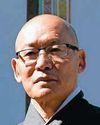
GDP as the only measure of progress is illogical
Dasho Karma Ura, one of the world's leading happiness experts, has guided Bhutan's unique gross national happiness (GNH) project. He uses empirical data to show that money cannot buy happiness in all circumstances, rather it is family and health that have the strongest positive effect on happiness. Excerpts from an interview:
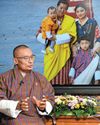
India is not a controlling big brother
Prime Minister Tshering Tobgay considers India a benevolent elder sibling as the \"big brotherly attitude\" is happily missing from bilateral ties. He thinks the relationship shared by the two countries has become a model of friendship not just for the region, but for the entire world. \"India's attitude is definitely not of a big brother who is controlling and does not allow the little brother to blossom and grow,\" says Tobgay in an exclusive interview with THE WEEK.
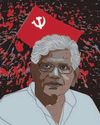
Comrade with no foes
Lal Salaam, Comrade Yechury-you were quite a guy!
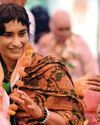
Pinning down saffron
In her first political bout, Vinesh Phogat rides on the anti-BJP sentiment across Haryana

MAKE IN MANIPUR
Home-made rockets and weapons from across the border are escalating the conflict
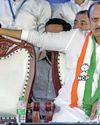
SAHEB LOSES STEAM
Coalition dynamics and poor electoral prospects continue to diminish Ajit Pawar's political stock